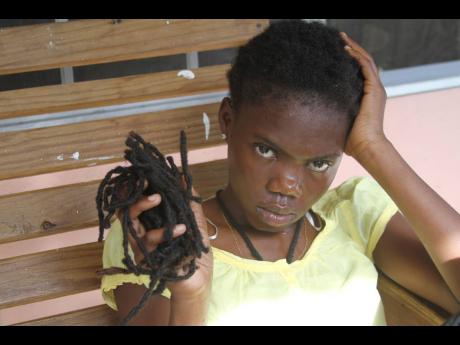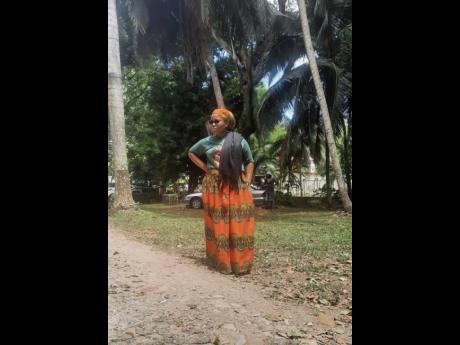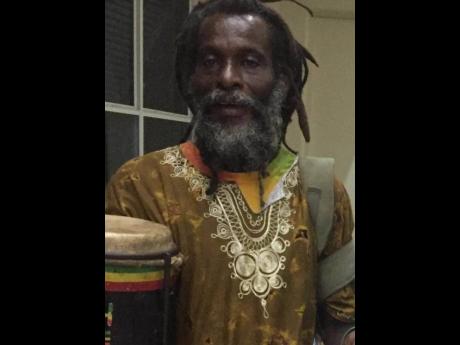Rasta group calls for removal of cop involved in dreadlocks trimming
Ras Ivi Tafari, head of Cutting Edge Cultural Inity – a Rastafarian group based in May Pen, Clarendon, says the Rastafarian community is disgusted by the alleged trimming of 19-year-old Nzinga King while in custody at the Four Paths Police Station on July 22.
“This thing get we mad, get we angry. The global community is irate. Government a push Rasta fi bun tyre and behave boisterous. The Government is pushing us to do things we don’t want to do, because it seems, if you don’t bun tyre, block roads and behave boisterous, they don’t hear your voice,” Tafari told The Gleaner.
Tafari contended that the woman corporal accused of cutting Nzinga’s dreadlocks should be relieved of her duties while investigations into the matter are ongoing.
“That police officer cannot be there in Four Paths administering police duties when she actually is the criminal in her actions. So we are calling for her removal from duties pending an outcome of this case.”
He said, if the suggestion is not considered, then the Rasta community will be forced to protest.
“Other Rasta communities and agencies in Jamaica are saying, ‘Rasta we are ready when you are, we will march alongside you because it’s time this comes to an end.’ The Government of Jamaica must do something and, if they don’t, we will have to take the necessary steps,” he said.
“This woman cut the young lady’s locs ... removed 19 years of sacred covenant. She should go open a salon or a barber shop since she like cutting hair that much, “said an irate Tafari fuming.
He told The Gleaner that members of the Rastafarian faith in Chile, France, Ethiopia and other countries have been expressing their concerns.
“They are calling in asking what is happening in Jamaica and they thought Jamaica was a Rastafari haven. It makes Jamaica look bad. It makes other islands think they can do it too, ‘cause, if the founding fathers and mothers still a suffer, then why should their government show them any respect?” he questioned.
INFRINGEMENT ON RIGHTS
He expressed that a common narrative of the Rastafarian faith in Jamaica subjects Rastas to oppression and having their fundamental rights being infringed upon.
“A young woman could not be trimmed by the police in Canada and a big lawsuit is not ensued, and they would not have done so, because they recognise the rights of a multicultural society,” Tafari told The Gleaner.
“How can Jamaica put up Bob Marley’s image to attract foreigners to the country when Rastas in Jamaica are being disenfranchised and disrespected? It looks like some of these police have that old trend in their mind that, when them see Rasta, them must think ‘trim and brutality’.”
Tafari said that laws should be enacted to protect the rights of Rastas, adding that the move is long overdue.
“Violation of one’s spiritual, religious, social, fundamental rights and privilege should be punishable under the law, and Rasta is no exemption,” he said.
Monifa Hope-Morgan, assistant secretary in the oldest Rastafarian subgroup, the Nyabinghi Order, theorised that Rastafarians are only accepted for commercial and capitalism purposes in Jamaica.
“We are good for promoting reggae, we are good for a boost in tourism, but we are not good to exist on our own,” she said.
She said, after 100 years, it is unfortunate that there is still a discussion about Rastafarians being chastised.



